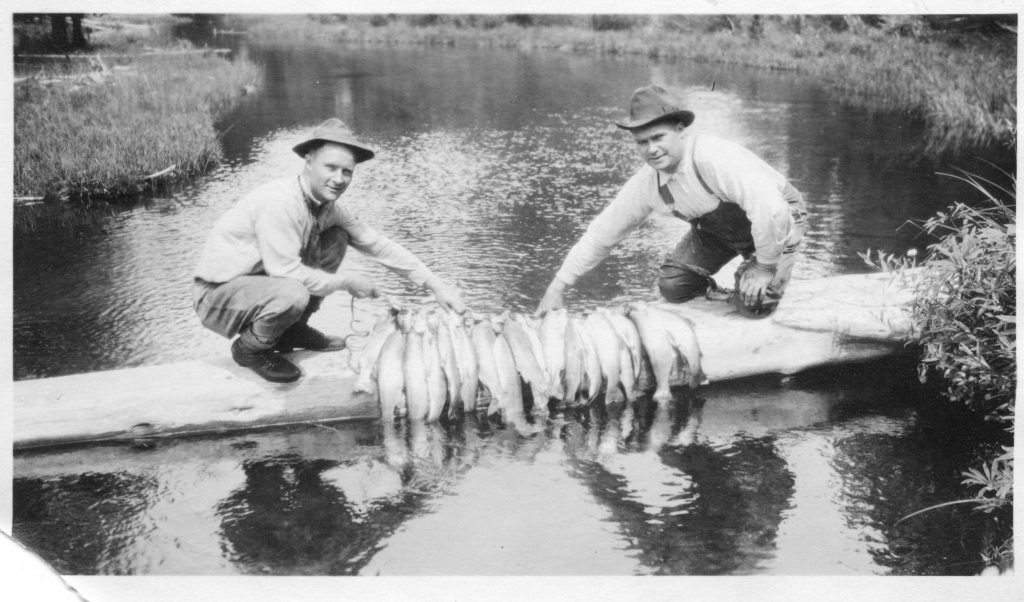“Who hears the fishes when they cry?” Those haunting words were penned by Henry David Thoreau almost 200 years ago, a reaction to the declining salmon runs he witnessed on the East Coast. Those fish long lost have been referred to as “ghost fishes.”
We do not intuitively know what used to be. We suffer from ecological amnesia, accepting what we see today as normal. A hundred years after the Deschutes River was dammed and diverted in order to irrigate arid lands, how do we know what we’ve lost? Thoreau’s piercing question echoes through time.
A number of years ago, the reality of my own front-yard river hit home for me. The Deschutes, our beautiful river, once teemed with fish and other wildlife. In little more than a century, it has been transformed from a flourishing ecosystem to a highly altered, managed system with greatly diminished habitat for native fish and wildlife.
In the winter months, the Upper Deschutes is deprived of water when Wickiup Reservoir is filled for the next year’s irrigation season. In the summer, the river has too much water—with too much power—that courses through and overwhelms the natural ecology and riverbanks. Author and angler Bruce Bischof wrote, “Although during peak summer flows, the river is beautiful by visual standards, it is virtually sterile by healthy stream standards.”
The Middle Deschutes, from Bend’s northern end to Lake Billy Chinook, has the opposite problem in the summer. Most of the water we see flowing through Mirror Pond is diverted into canals, leaving the Middle Deschutes with too little water that heats quickly and can reach temperatures that are lethal to native fish.
And yet, if I am to lament ecological loss and advocate for change, I must also acknowledge that I, and all of us, have benefited from the actions of our predecessors. I must own the past that has allowed us to thrive here. Agriculture and urbanization have gone hand in hand, and I must reconcile the intertwined histories of agriculture, urbanization, and the river that sustains us all.
I left my previous job to found the Coalition for the Deschutes with the intention of speaking for the river. But I quickly learned that the river’s story couldn’t be told without also telling the story of irrigated agriculture, and the communities that grew up around it. The stories and the issues are complex. They are cultural, economic, historic, legal, societal, political, ecological, hydrological, and geological. They are inextricably entwined. The adage of the western U.S.—that whiskey is for drinkin’ and water is for fightin’—has a basis in reality.
Plenty of blame has been cast for the problems that beset the river, and there is an abundance of blame to go around. But unless we sit at the table and engage in authentic dialogue, unless we listen carefully, unless we are prepared to let go of preconceptions and move beyond blame, we run the risk of perpetuating the very status quo that we seek to change.
Today the Coalition for the Deschutes is working with farmers so that we can restore the Deschutes River. We’re taking to heart another of Thoreau’s musings: “It’s not what you look at that matters, it’s what you see.”
We have a shared vision of restoring our river and having secure, sustainable agriculture in Central Oregon. Achieving that vision means modernizing the irrigation system that was built a hundred years ago. Open canals might be pretty, but they are not quality habitat, and they are inefficient, obsolete and wasteful. Water now lost to evaporation and seepage can and must be conserved in order for our rivers to be restored.
“Who hears the fishes when they cry?” Many of us, from many different walks of life. It took time to get into this situation; it will take time to get out of it. But by working together and staying focused on the big picture, we can restore our river while maintaining farmland and supporting farmers.
What can you do? Join the Coalition for the Deschutes and help us speak for the river. Buy produce from local farmers. Tell your elected officials that you support irrigation modernization so that conserved water can stay in the river. Foster a conservation ethic and don’t waste water in your home or yard; although our household use might seem insignificant, our personal actions matter. And perhaps most important of all, keep an open mind and heart. Because our river needs you.

Out beyond ideas of wrongdoing and rightdoing there is a field. I’ll meet you there.
Rumi
Note: An article published May 15, 2018 by Bend Health Guide was based on this original essay. Restoring the Deschutes River: Getting Beyond the Blame, 2018 Spring Ed., pp 26-27